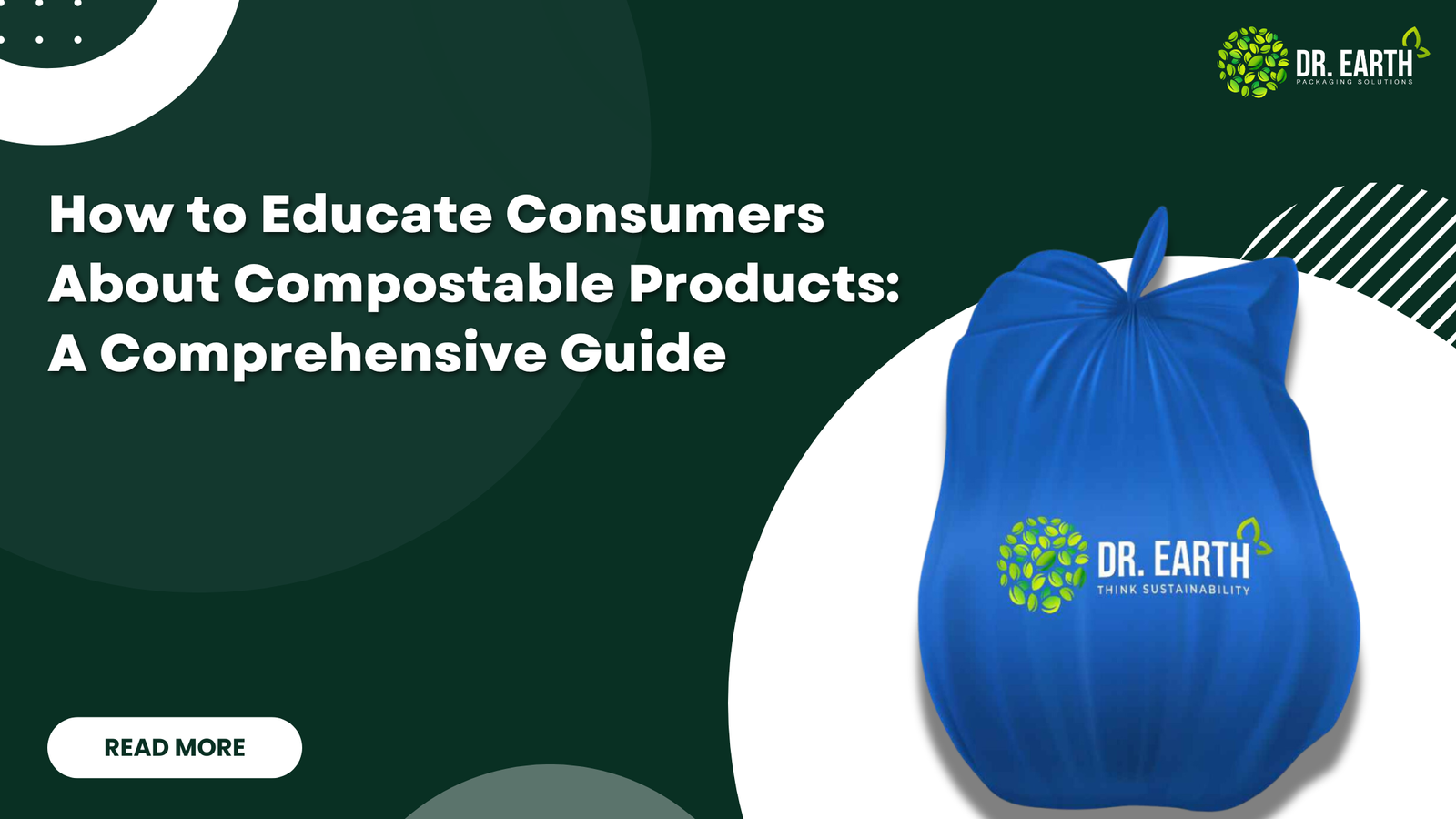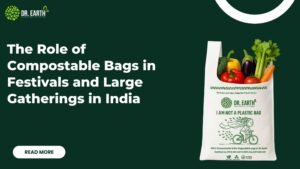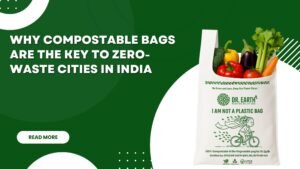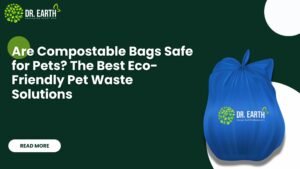
Increasingly, moving the world from a nonrecyclable toward sustainable solutions relies on educating its consumers about what compostable is and how that relates to such products. Consumers have to become educated about the beneficial use and methods of disposal associated with compostables. This study aims to come up with informed ways to address and engage these consumers in implementing compostable choices.
Understanding Compostable Products
These compostable products decompose into the natural elements found in a composting environment with no toxic residues. In comparison, plastic might take hundreds of years to break down. Such products are the sustainable solution since they reduce the waste and the pollution generated through the same.
The Science Behind Compostable Products
These products are made from organic sources, such as cornstarch, sugarcane, and bamboo. They break down with the help of microbes, heat, and moisture to turn into nutrient-rich compost in months. Biodegradable products can leave microplastics, whereas compostable products fully go back to earth and enrich it instead of damaging it.
Importance of Consumer Education
Most consumers do not know what compostable products are and their difference from biodegradable and recyclable materials. Proper education can help in:
- Reduce contamination of the composting facility.
- Increase responsible disposal behaviors.
- Increase consumer confidence in eco-friendly products.
- Boost demand for eco-friendly products.
Common Misconceptions About Compostable Products
Many people confuse compostable and biodegradable products. Biodegradable products break down over time, but they may leave residues that are harmful to the environment, whereas compostable products break down completely and contribute to soil health.
Strategies for Educating Consumers
1. Clear Labeling and Packaging
Labels should display information that says it is compostable and provides details on proper disposal. Other certification from some reputable environmental associations may give some credit and ensure buyers. There will be an aversion towards confusing terms and hence, they will use something like “Certified Compostable” or “100% Home Compostable”.
2. Digital Marketing and Social Media
Social media, blogs, and email marketing can be employed to raise consumer awareness about compostable products. Infographics, videos, and customer testimonials help convey key messages.
- Develop short, inspiring videos depicting the advantages of compostable products.
- Utilize before-after decomposition visuals to convey the message on environmental impact.
- Partnership with eco-conscious influencers to expand reach even further.
3. In-Store Education
The customers will be educated about the compostable products through in-store signage, QR codes, and product demonstrations. Others may also learn from special educational pamphlets or even from a workshop. The store employees should be educated to enlighten customers about the compostable products, features, and benefits.
4. Partnerships with Environmental Organizations
Partnering with environmental groups enhances outreach efforts. These groups could be engaged for campaigns, events in communities, and education activities. Companies may sponsor workshops and contribute to neighborhood sustainability projects besides providing educational literature to schools and non-profit making organizations.
5. Schools and Educational Institutions
With compostable product education in schools, one can ensure the development of environmentally friendly habits from a young age. Hands-on sessions, sustainability workshops, and composting programs will boost the awareness of students’ contribution to the environment. Schools can initiate:
- Composting programs in which children see how decomposable products break down.
- Lesson plans involving sustainability as part of science and environmental studies classes.
- Projects for making and utilizing decompost.
6. Influencer and Community Engagement
Engage with influencers and sustainability activists to amplify reach. The resultant user-generated content and community discussions would go a long way in creating a ripple effect to promote awareness. Organize eco-challenges or involve communities in local composting schemes and more.
7. Offering Incentives
For example, businesses may offer discounts, loyalty points, or rewards to encourage consumers to choose compostable products. Business may also launch an eco-friendly incentive program:
- Discounts to customers for using reusable or compostable packaging
- Reward points when consumers share the composting effort on social media
- Subscription program offering discounts after regular use of compostable products.
8. Public Campaigns and Government Support
Governments can lead the way by conducting awareness campaigns, developing legislation that promotes the use of compostable products, and funding studies on the advantages of compostable products. Public programs, like waste management workshops, information commercials, and community-wide composting programs, will further drive home the need for consumers to adopt compostable products.
9. Corporate Responsibility Initiatives
Businesses can educate consumers through brand building by tying sustainability to their brand. Companies can:
- Educate their customers with webinars and workshops.
- Develop and publish blogs as well as other informed FAQs on their site.
- Provide free samples of compostable products along with instructions on how to dispose properly.
Case Studies: Successful Consumer Education Initiatives
Various businesses and organizations have educated their consumers on the compostable product as follows:
- Eco-Cafés: Some coffee houses offer composting bins and have clear guidelines about composting of their takeaway cups and cutlery.
- Zero-Waste Retailers: Those stores that specifically focus on sustainable living conduct composting workshops along with the best practices for managing compostable packing.
- Government Programs: Municipal bodies have initiated educational programs to sensitise the locals about composting, making the shift to compostable alternatives an easier process.
Overcoming Common Challenges
- Misunderstandings: Many consumers are of the notion that biodegradable products equal to compostable ones. Education on this aspect is very necessary.
- Lack of Infrastructure: Incentivizing governments to invest more in composting infrastructure can promote adoption
- Cost: Environmental and economic value can be established for long-term returns.
- Resistance to Change: Most people are used to plastic packaging. Education should be on the ease of changing to compostable and the positive environmental impact.
Future of Compostable Products and Consumer Awareness
The market for compostable products is going to experience a tremendous rise with rising regulatory support and consumer interest. As awareness increases, businesses will be required to continuously innovate to ensure that compostable solutions are cheap and accessible to the masses.
Conclusion
Educating the consumers regarding the compostable products is essential for sustainability as well as minimization of waste. Effective communication can be utilized to make environmental responsibility common in businesses and other organizations. In this manner, each of us can take informed decisions that make our earth healthier.
FAQs
Q- 1. What is the difference between biodegradable and compostable products?
Ans-Biodegradable products decompose naturally but usually leave residues behind. On the other hand, compostable products break down completely to become nutrient-rich compost.
Q- 2. How long do compostable products take to decompose?
Ans- Compostable products may disintegrate in just 3-6 months within a composting environment, according to the condition of heat and moisture.
Q- 3. Are compostable bags safe for food storage?
Ans- Yes, the food bags made of plant-based material that prevent toxic chemicals and are non-toxic.
Q- 4. Where can I buy compostable products?
Ans- Stores selling environmental friendly retailer, e-commerce stores and business firms who specialize in eco-friendly packaging.
Share:
Related Posts














